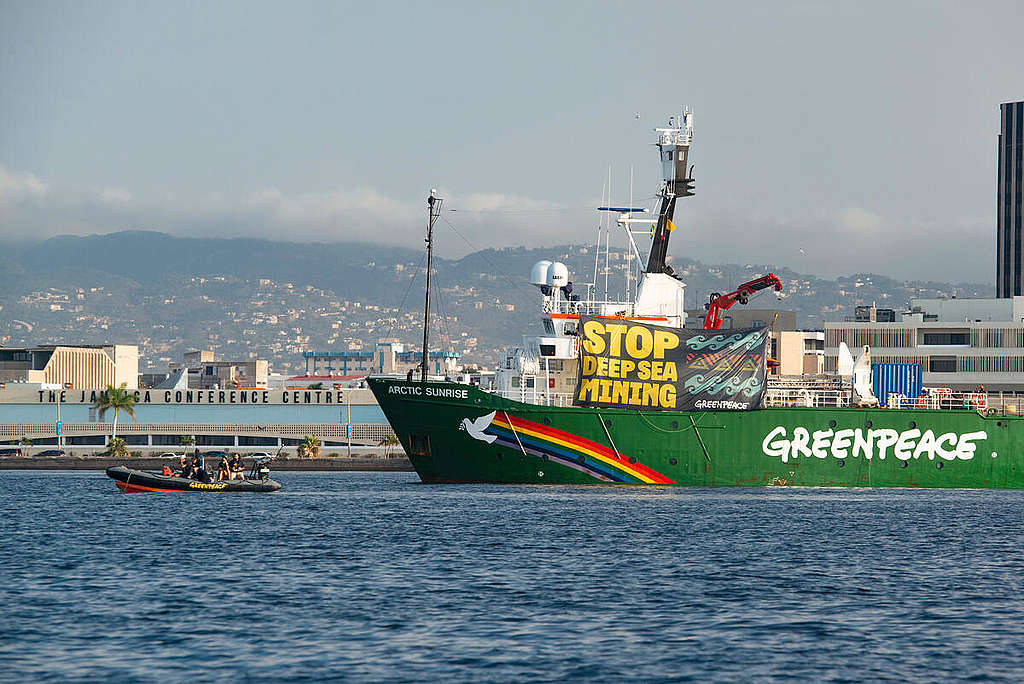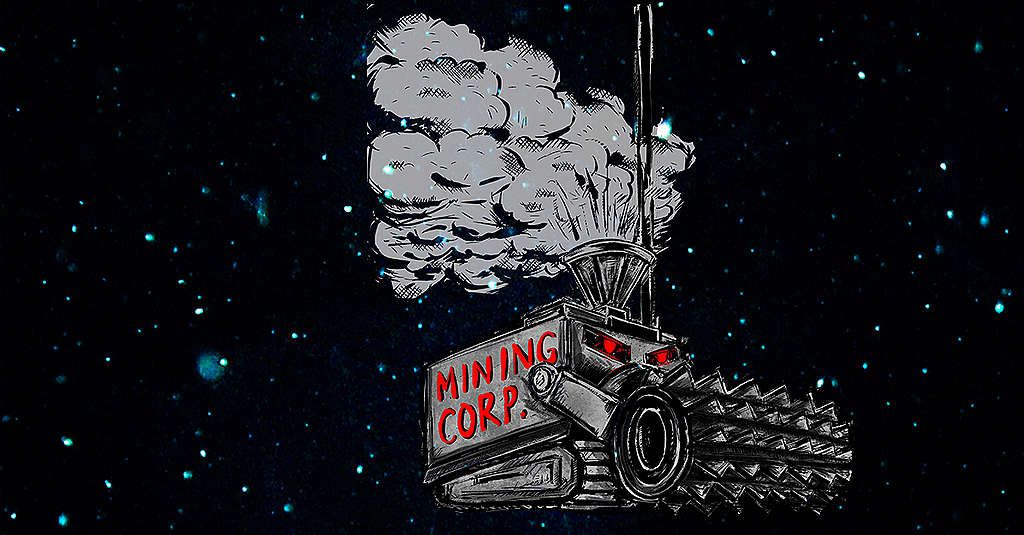The vast expanse of the Pacific Ocean is home to an incredible array of marine life and resources that are vital for our planet. However, a dangerous threat looms beneath the waves – deep sea mining. Despite the recent win of the Global Oceans Treaty, which aims to protect the world’s oceans, mining companies are still eager to extract valuable minerals from the ocean floor. This reckless pursuit of profit could cause irreparable harm to this fragile ecosystem. Here we explore the dangers of deep sea mining and why Greenpeace is taking action to prevent this industry from wreaking havoc on the Pacific Ocean and the people who depend on it.
Deep sea mining presents an imminent threat to the unique and fragile ecosystem of the Pacific Ocean and, consequently, to the world. This destructive mining process involves excavating the ocean floor to extract valuable minerals, such as copper, cobalt, and manganese. As a result, the deep-sea habitats that provide a safe haven for many species are destroyed, including those yet to be discovered. Furthermore, the plumes of sediment produced by mining operations can choke and kill marine life, leaving behind a once-thriving ecosystem, barren and lifeless. Once lost, this delicate and irreplaceable ecosystem cannot be restored, making the stakes of this industry all the more dire.
The Case Against Deep Sea Mining – TIME
But the impact of deep sea mining goes beyond the environment, posing an immense threat to the livelihoods of many indigenous communities who rely on the ocean for their survival. Fishing is a crucial source of income and food for millions of people in the Pacific, and the destruction of marine habitats will have devastating consequences for their lives. Additionally, deep sea mining activities release chemicals and heavy metals that can contaminate the water and seafood, putting human health at risk. The risks to human life and wellbeing cannot be ignored. Therefore, it’s critical that we take action to prevent this disastrous industry from wreaking havoc on our oceans and the communities that depend on them.
The Contribution of Fisheries to the Economies of Pacific Island Countries

The urgency to protect the Pacific Ocean and its delicate ecosystem from the looming threat of deep sea mining cannot be overstated. The International Seabed Authority (ISA), responsible for protecting the international seabed, is moving full speed toward allowing mining activities despite the Global Oceans Treaty. It has been accused of being heavily influenced by mining companies and their financial interests, leading to a worrying trend of industry capture where companies influence political discussions. This blatant conflict of interest puts the ocean and those who rely on it at great risk.
The urgency to begin deep sea mining is intensified by the Two Year Rule, a provision of the United Nations Convention on the Law of the Sea (UNCLOS). The Two Year Rule allows mining companies to declare their intention to submit a ‘work-plan’ within two years, after which the International Seabed Authority (ISA) is expected to have developed mining regulations. This limits the ability of governments and observers such as Greenpeace and the Deep Sea Conservation Coalition to engage in meaningful debate about how to proceed. As a result, mining companies are motivated to push their agenda forward and commence mining operations as soon as possible, regardless of the potential harm and risks to the ocean and its inhabitants.
Mining companies are aggressively pursuing deep sea mining activities in the Pacific Ocean, despite the substantial risks and environmental concerns. The lure of enormous profits from mining the ocean floor is driving this industry’s race to the bottom. The urgency to protect the ocean and its inhabitants from the devastating consequences of deep sea mining has never been more pressing. Immediate action must be taken to prevent irreversible harm to the Pacific Ocean and the people whose lives depend on it.
By taking action out here in the Pacific Ocean today, we are sending a message to the industry that any progression of deep sea mining will be met with opposition. Whether it be industry funded research, or mining trials, we will oppose both on land and at sea. Our message is simple – “Don’t mine the moana (ocean)”.

Not only is it an irony that the research vessel on this SmartEx expedition is named after the notorious coloniser James Cook, it’s a cruel insult to the people of the Pacific. We are still suffering the impacts of colonisation and systematic racism to this day, and yet his name is being paraded through the Pacific Ocean in pursuit of minerals which would just make rich individuals even richer.
By drawing global attention to this ship out at sea pushing the deep sea mining agenda, while decision makers are sitting in the ISA body in Kingston, Jamaica, we are showing that while the ISA talks, the industry stalks. Like a predator in the high seas, industry cares only about profit.
While we are in the midst of a climate crisis, it makes absolutely no sense to risk destroying one of the biggest allies we have. After the win of a Global Oceans Treaty which was the result of decades of campaigning and negotiations, the fact we are still fighting a profit-based extractive industry like this is simply not acceptable. But instead of focusing on raising awareness alone, we need to take concrete action to prevent deep sea mining from causing irreparable harm to the Pacific Ocean and the people who depend on it.
This means actively advocating for and supporting the further implementation of the Global Oceans Treaty, as well as pressuring the International Seabed Authority to prioritise the protection of the ocean over the financial interests of mining companies. Organisations like Greenpeace are taking direct action to oppose deep sea mining, and urging governments to take a stand against this destructive industry. By taking tangible steps to prevent deep sea mining, we can help safeguard the future of the Pacific Ocean and its inhabitants for generations to come.

It’s time for New Zealand to take a stand. Join our call on the New Zealand government to back a global moratorium on seabed mining.
